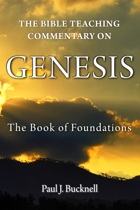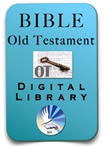Genesis 37-50 Joseph: An Example of Faith and Forgiveness Lesson #16
Joseph: An Example of Faith and ForgivenessGenesis 37-50Philip ChangIntroductionJoseph’s rags-to-riches story teaches us the key to a successful life is to trust God. By allowing God to use him wherever He pleases and whenever He chooses, God is able to use Joseph to the fullest. Through the ups and downs of his life, Joseph knew God was with him even when circumstance do not make sense. Objectives
Or better yet, for a little bit more get the Old Testament Library which has this book along with powerpoints, videos and hundreds of other articles, all presented with understanding and applying God's Word to our lives. Great deal! Joseph being sold into slavery (37)How is Joseph’s relationship with his brothers? What was the cause of the resentment? Joseph’s brothers hate him (37:4, 37:8) and are jealous of him (37:11). Reasons for jealousy: o Favorite of Jacob (37:4).o Two strange dreams – Agricultural and celestial.Joseph is young and unwise in telling the dreams to his father and brothers, but he harbors no antagonism or pride. Why are Joseph’s brothers angry when he shares his dreams? Joseph in his entire life has been obedient to God and his parents. This may be one of the reasons why he was hated. His brothers thought of him as goody-two-shoes. Joseph’s brothers plot to kills him when they thought they found an opportunity to do so. This shows the disregard for God in order to fulfill their own desires. Joseph’s life stands in contrast with those of his more worldly brothers. He is being persecuted for his righteousness. God’s sovereign choice brings out hatred and jealousy in people. Instead of submitting to God’s will, they would take matters into their own hands. What should be the right response for Joseph? Should he resist and plead with the brothers to spare him? Should he agree to certain concessions and take the easy way out? Talionic (retaliatory) justice: o Jacob deceived his father because Isaac was blind (27) –o Laban deceived Jacob in the darkness of the night (29)o Isaac was deprived of Jacob’s presence for 20 years because of Jacob’s deception (27) – Jacob was deprived of Joseph’s presence for 20 years because of Joseph’s brothers wickedness (37) o Mosaic Law in Exodus 22: 22-23 “Do not take advantage of a widow or an orphan. 23 If you do and they cry out to me, I will certainly hear their cry. 24 My anger will be aroused, and I will kill you with the sword; your wives will become widows and your children fatherless.” o God uses talionic justice to train and discipline his chosen people by helping them see their wickedness. o It is a painful and personal, but effective method. He uses it to bring his children to sanctification and moral purity.
Joseph’s encounter with the Cupbearer and Baker (40)Using the window of interaction with the cupbearer and the baker we can gain understanding of Joseph’s character and his heart. What can we learn about his approach to life? 1. Joseph cares about the people around him even though he is in an unpleasant place and does not deserve to be there. 2. Joseph acknowledges that the dream’s interpretation is from God and not of himself. He is simply used as an instrument of God. He did not steal God’s glory. Joseph is careful to give the proper credit to God when interpreting the cupbearer, the baker and Pharaoh’s dreams. 3. He delivers the messages faithfully and honestly regardless of the popularity of his message. 4. Joseph is wise in taking advantage of the cupbearer’s official position to get him out of prison. 5. Joseph harbors no bitterness and resentment toward the cupbearer who forgot about him. He recognizes God’s sovereign control and perfect timing. Joseph interprets Pharaoh’s dreams (41)
Famine in Canaan (42)Key events:o Jacob sends sons, all except Benjamin, to Egypt to buy grain because of the severe famine. (42) o Joseph recognizes the 10 brothers right away but the brothers do not recognize him. o Joseph speaks harshly to the brothers and accuses them of being spies. o The brothers realize their past sin against Joseph as the cause of their present trouble. o The table has been turned – The 10 brothers are now in a position of weakness (42:21-22) o Joseph sees their repentance and weeps. o The brothers’ bags are filled with grain and the silver they brought. They are sent on their way back to Canaan. o The brothers are terrified when they saw their silver in their bags. Jacob realizes there is trouble ahead. o Jacob sends all his remaining sons, including Benjamin, to Egypt for a second trip to buy more grain after Judah guarantees Benjamin’s safe return. o Judah emerges as the leader of the 10 brothers o Joseph instructs his steward to care for the brothers and prepare them for lunch. o Joseph goes away to weep at the sight of his brother Benjamin. This shows the tender heart of Joseph. o The brothers are astonished by the seating order. Benjamin is served five times the portion of the other brothers. o The brothers are sent back with grain and the silver they brought, along with Joseph’s silver cup in Benjamin’s sack. (44) o The departing brothers are stopped, searched and then returned to Egypt. o The brothers said: “What is this that God has done to us?” A similar response was heard earlier when being questioned by Joseph and they remembered their past faults. Do we only think about God and our transgressions when we encounter difficulties in life and need help from Him? o Judah pleads with Joseph on the basis of Jacob’s concern to keep him rather than Benjamin as the slave. o Joseph makes himself known to his brothers (45) o "I am your brother Joseph, the one you sold into Egypt! 5 And now, do not be distressed and do not be angry with yourselves for selling me here, because it was to save lives that God sent me ahead of you. 7 But God sent me ahead of you to preserve for you a remnant on earth and to save your lives by a great deliverance." o Joseph sends the brothers back to Canaan to pick up Jacob and the rest of the family. o Pharaoh gives Jacob’s family the best of the land.
o But Joseph said to them, "Do not be afraid, for am I in God's place? o "As for you, you meant evil against me, but God meant it for good in order to bring about this present result, to preserve many people alive. o "So therefore, do not be afraid; I will provide for you and your little ones." So he comforted them and spoke kindly to them. Conclusion
1. Jacob sent Joseph to check on his brother. 2. the Midianites were passing though where and when Jacob’s sons were Dothan. 3. the Midianites went to Egypt and sold Joseph there. 4. it was Potipher, Pharaoh’s official, that bought Joseph. 5. Potipher’s wife liked Joseph and eventually got him thrown in jail. 6. Pharaoh’s cup bearer and baker offended their master and ended up in jail as well. 7. the two officials had such strange dreams. 8. Pharaoh also had two unusual dreams of his own. 9. the cupbearer forgot about Joseph for at two years and then remembered him at the right moment. 10. seven years of abundance and seven years of famine was about to start. The concept of the groove of grace is again seen in Joseph’s life (Proverbs 3:4-10)o Ingredient 1: Trust in the LORD with all your heart o Ingredient 2: Fear the LORD and turn away from evil o Ingredient 3: Honor the LORD from your wealth Next => the assignment for this lesson ________________________________________________________________ Joseph’s Dillusonment (Genesis 37-50) | The Big Picture (Genesis 42-47:12) | Conclusion | The Reason |


